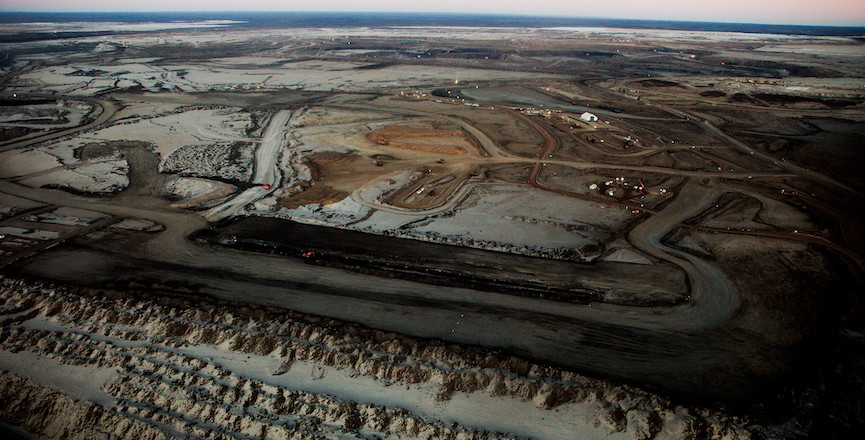There’s little in the Intergovernmental Panel on Climate Change’s latest report that we didn’t already know. It’s shocking nonetheless — albeit with a glimmer of hope.
The first of the four-part Sixth Assessment, “Climate Change 2021: the Physical Science Basis,” confirms that human activity — mainly burning fossil fuels and destroying natural carbon sinks — is heating the planet at unprecedented and accelerating rates, that warming will continue at least until mid-century no matter what because of emissions already emitted, and that global warming will exceed 1.5 or 2 C this century unless we rapidly reduce emissions.
The report also details the disastrous consequences of not acting, from increasing extreme weather to impacts on water cycles and agriculture. “Many changes due to past and future greenhouse gas emissions are irreversible for centuries to millennia, especially changes in the ocean, ice sheets and global sea level,” it states.
A leaked draft from the third working group goes further, stating that “emissions must peak in the next four years, coal and gas-fired power plants must close in the next decade and lifestyle and behavioural changes will be needed to avoid climate breakdown.” (The assessment includes three parts and a synthesis report, each subject to approval by 195 member governments.)
Every assessment since the first in 1990 has warned that we face an uncertain future if we don’t address climate disruption. Research methodologies have improved, evidence has mounted and certainty has become absolute since then, but we knew where we were headed. This report confirms we’re already there.
We can see it ourselves: unprecedented heat waves, wildfires, flooding, droughts, species extinction, water scarcity, conflict… The almost-4,000-page report’s evidence — compiled by 284 expert authors from 66 countries who reviewed 14,000 studies representing the most up-to-date climate science — is incontrovertible.
UN Secretary-General Antonio Guterres called it a “code red for humanity” that “must sound a death knell for coal and fossil fuels, before they destroy our planet.”
There’s no denying that we need to act fast or face accelerating climate chaos. The reasons go beyond attempting to stabilize the climate: rapidly reduced pollution and related health care costs, better employment and economic opportunities, fewer impacts on land and water, and numerous co-benefits.
But I ask again (I’ve been banging on about this for as long as the IPCC has been releasing reports), why the hell aren’t we doing more? Why, after more than 30 years of mounting evidence and certainty (almost 200 since the greenhouse effect was first observed), as well as easily observable evidence, are media outlets of record still publishing anti-science nonsense by industry shills and deniers? Why are governments failing to do what’s necessary?
The IPCC report indicates we can’t and needn’t give up hope. But averting the worst impacts of the crisis means rapidly shifting away from fossil fuels, protecting natural carbon sinks and employing “negative emissions technologies” and nature-based solutions to remove CO2 from the atmosphere.
Governments that talk about climate commitments while buying pipelines and subsidizing fracking — or worse, whine that transitioning from fossil fuels is “unrealistic” and “utopian” — aren’t helping. Nor are media outlets that either downplay the climate crisis (often through lack of coverage) or spread false information in service to the fossil fuel industry and its front groups.
People are willing to reduce their carbon footprints, but incremental change is no longer enough. We need transformational, systemic change that can only come from the top. Governments, business and industry, financial institutions, media and more must look out for the interests of those they’re supposed to serve and start acting on the evidence.
Because so many of them aren’t listening, it’s up to us to speak louder — with our ballots, money, bodies and voices. Vote for politicians who are serious about climate and pollution. Support businesses, media outlets and financial institutions that recognize the crisis for what it is. Follow the lead of the youth, Indigenous people and activists and join or support protests and climate strikes. Talk to your family, friends and neighbours, but remember the words of Buddhist monk Thich Nhat Hanh: “Speak the truth but not to punish.”
The IPCC assessment and the research it’s based on are a clear warning that our time is running out. We’ve identified the problem and solutions. What are we waiting for?
David Suzuki is a scientist, broadcaster, author and co-founder of the David Suzuki Foundation. Written with contributions from David Suzuki Foundation Senior Writer and Editor Ian Hanington.
Learn more at davidsuzuki.org.
Image: Kris Krug/Flickr



